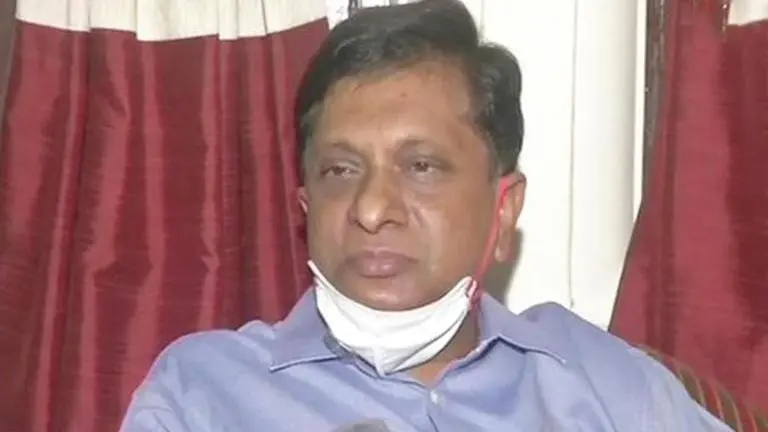Updated 24 January 2022 at 18:06 IST
IAS Cadre Rules amendment will benefit both Centre and officers: I&B Ministry Secretary
Apurva Chandra explained that the changes are significant that the Indian Administrative Service is the backbone of governance and policies in the country.
- India News
- 3 min read

Apurva Chandra, Secretary, Ministry of Information and Broadcasting, said on Monday that the idea of making changes in the Indian Administrative Service (IAS) cadre rules is to make sure the Central government gets more officers. While talking to ANI, he said, only 18 percent is in deputation now compared to the requirement of 40 percent. He added that in 2014, the deputation of officers was 25 percent, and it has declined now. Chandra explained that the changes are significant that the Indian Administrative Service is the backbone of governance and policies in the country.
"The role of Centre is to frame policies and also to make sure that the schemes are implemented, and states also do their own role. However, governance will take a backseat if there is an inadequate number of officials at the Central government," the Secretary told ANI.
The Centre has proposed to add a provision in Rule 6 of IAS CADRE Rules, 1954. The present rule says that any IAS officer, with the concurrence of the state government concerned, could be posted on central deputation.
Chandra said that an emergency situation exists currently because the administrative structure of the central government suffers due to the fewer number of officials. "This number has come down considerably from 2014 till now. I have experience working at both the Centre and the state. It helps."
'Character of IAS and IPS is an all-India service': Apurva Chandra
On the reason behind the officers becoming captives of states, Chandra told ANI, "The character of IAS and IPS is an all-India service. If we become captive to a state, then there is no difference between a provisional service and an IAS officer. When you are captive in the state, it is true that you get faster promotions. But your vision and implementation are confined to the states only."
Advertisement
"When you come to the central deputation, you have wide experience and knowledge and can also deal with matters of international importance. And forget about the politics. Getting experience at both the Centre and the state levels is important for the career of an IAS officer", he added.
On Sunday, Kerala Chief Minister Pinarayi Vijayan wrote to Prime Minister Narendra Modi, mentioning that the current deputation rules are themselves heavily loaded in favour of the Centre, and additional stringency will weaken the very root of co-operative federalism. Earlier, West Bengal, Rajasthan, Chattisgarh, Jharkhand, and Tamil Nadu governments had opposed the Central government's proposed amendment to the IAS Cadre Rules.
Centre proposes an amendment to IAS Cadre Rules
The Centre has proposed to add a provision in Rule 6 of IAS Cadre Rules, 1954. With the current Rule 6, the Centre has proposed to attach: “Provided that each State Government shall make available for deputation to the Central Government, such number of eligible officers of various levels to the extent of the Central Deputation Reserve prescribed under Regulations referred to in Rule 4(1), adjusted proportionately by the number of officers available with the State Government concerned vis-a-vis the total authorised strength of the State Cadre at a given point of time. The actual number of officers to be deputed to the Central Government shall be decided by the Central Government in consultation with the State Government concerned."
Advertisement
(with ANI inputs)
Image: ANI
Published By : Dhanya AK
Published On: 24 January 2022 at 17:58 IST
